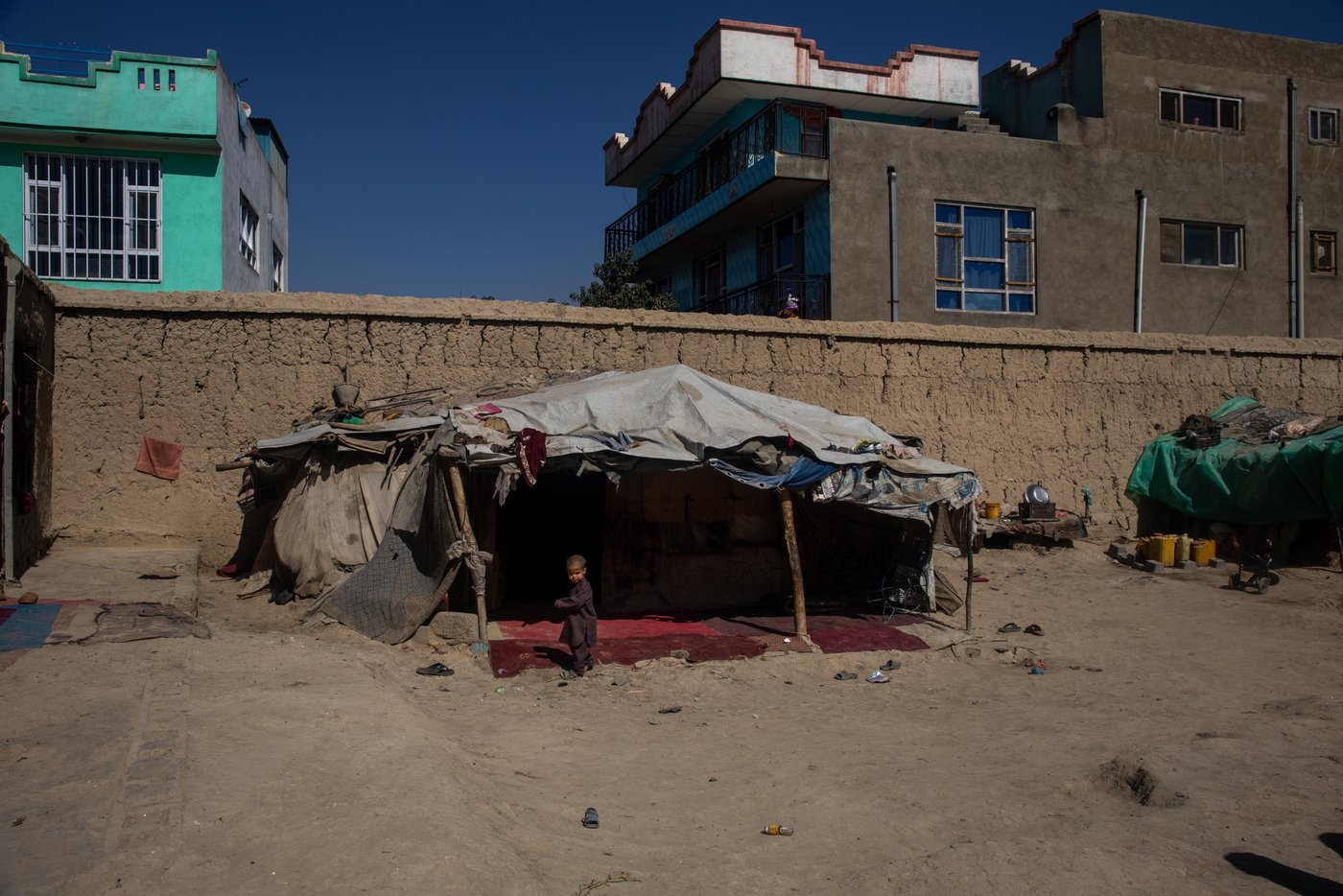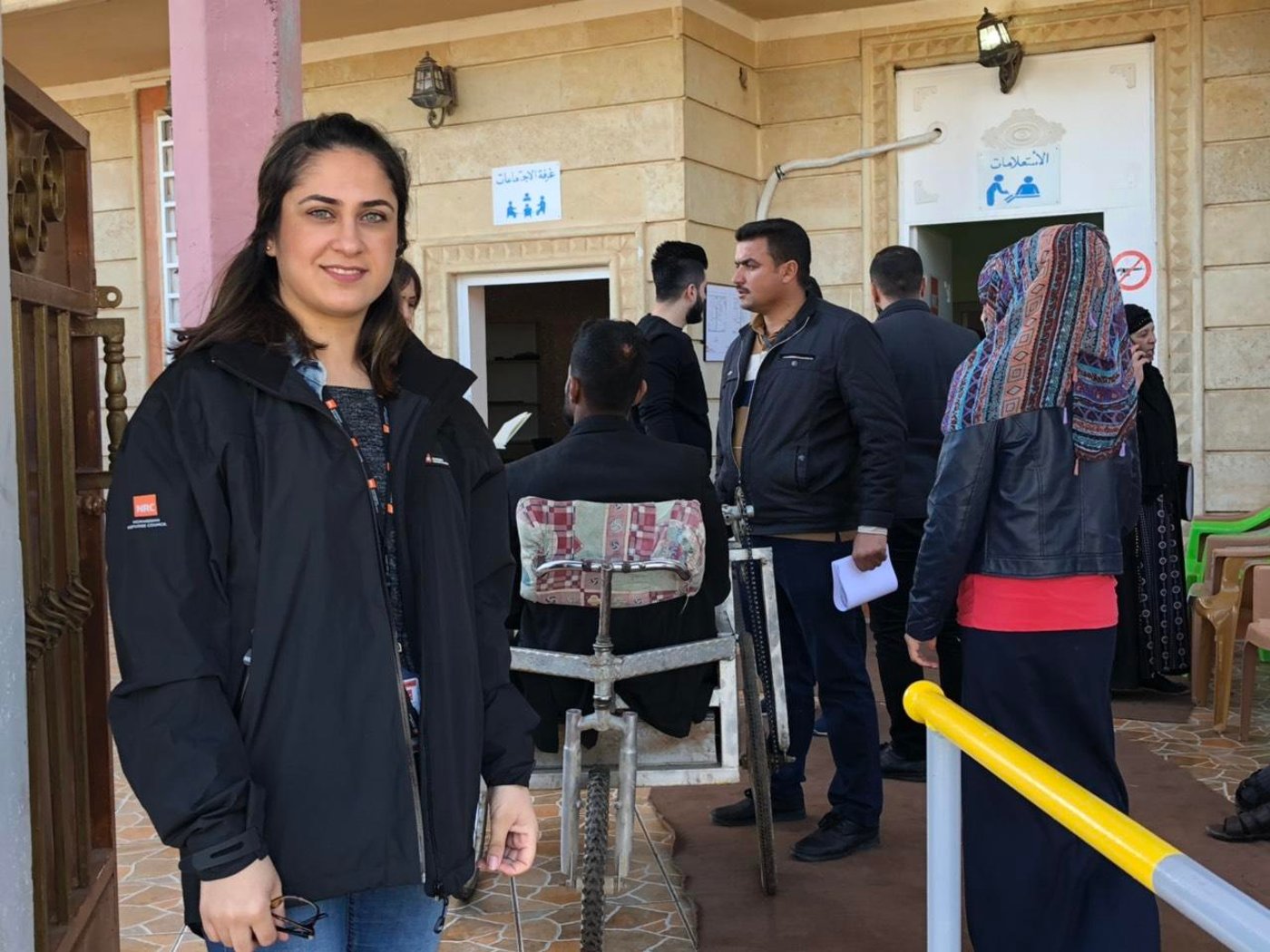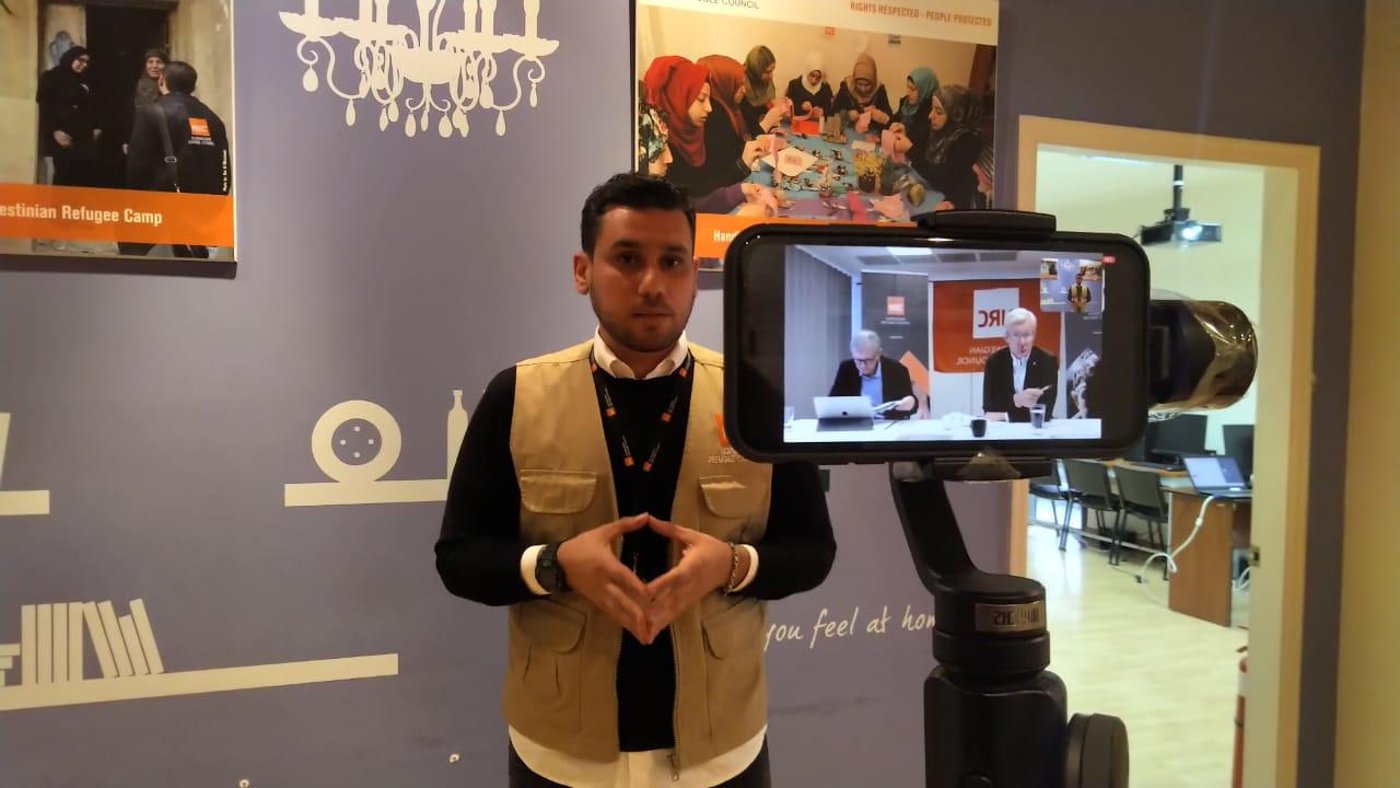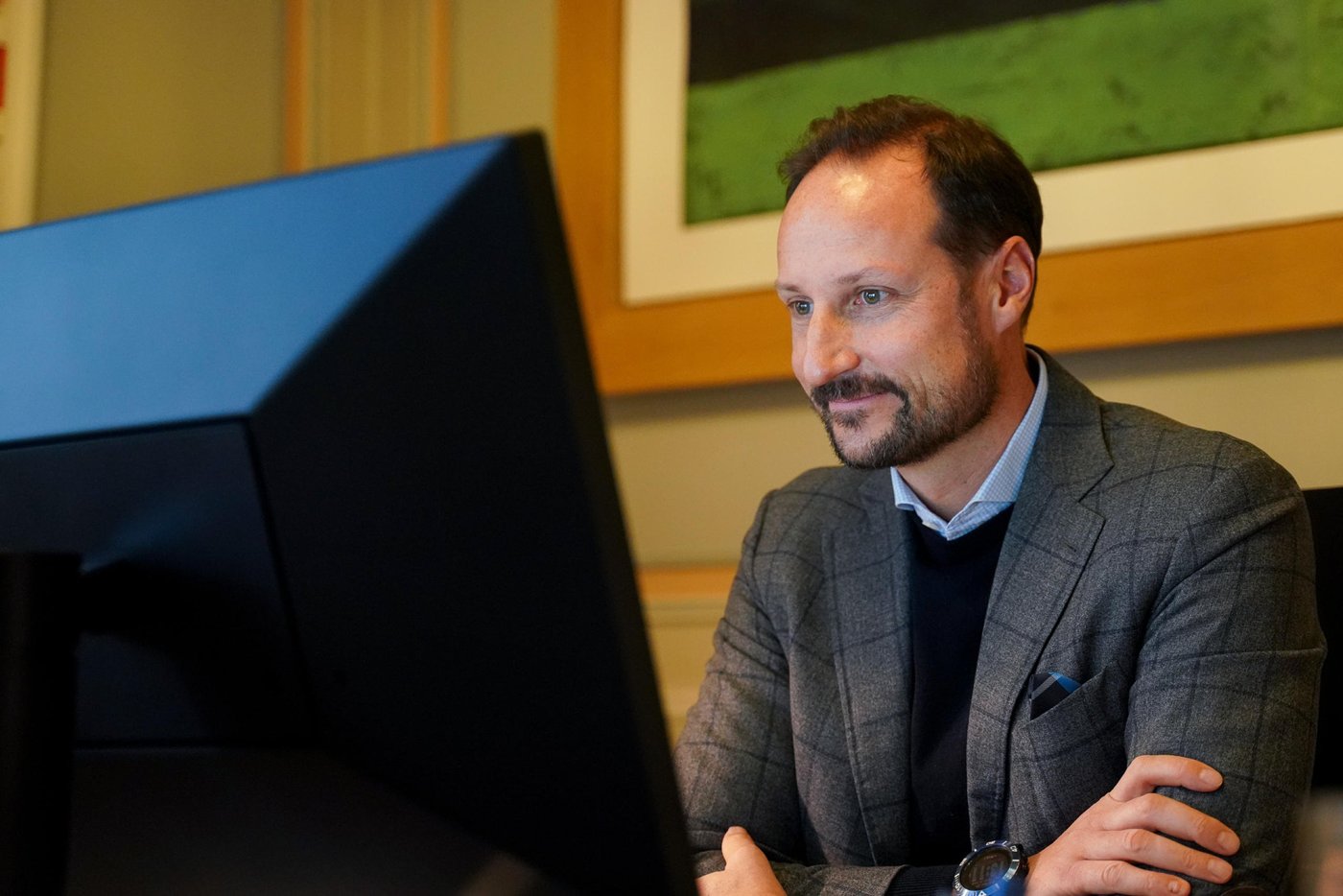On Wednesday afternoon, the Norwegian Refugee Council’s (NRC) patron, H.R.H. Crown Prince Haakon, travelled on a virtual field visit with NRC to some of the world’s most war-torn and crisis-stricken countries. From his home office in Skaugum, the Crown Prince met with young people from Afghanistan, Iraq, Lebanon and Yemen through his computer screen.
He was impressed, not only by the efforts made by NRC’s employees, but also by how displaced young people handle the hard reality of their everyday lives.
“It was very interesting to be able to get first-hand impressions from the different locations,” said the Crown Prince, who has been NRC’s patron since 2017.
You do very important work and it is impressive to see what you can manage in some of the most difficult places to work in the world. You are so determined to go where you are needed most. It’s really impressive and wonderful to see.H.R.H. Crown Prince Haakon
For an hour and a half, he met with displaced young people and NRC employees. Many of the employees themselves have a background as refugees. NRC Secretary General Jan Egeland acted as tour guide from the head office in Oslo.
The enthusiastic Crown Prince heard how the coronavirus pandemic has affected displaced families, and how they have received help to deal with a reality that was already challenging and difficult even before the pandemic.

First stop: Kabul
The first stop on the journey was Kabul, capital of Afghanistan. On the outskirts of the city, which houses between four and five million people, thousands of displaced families have sought protection. Here, they live in simple tents and earth huts with no electricity or running water. They make a living as day labourers or collect cardboard and scrap metal to sell. Only a few of the children go to school, and health services are virtually non-existent.
Many have been concerned about how the pandemic would affect these settlements:
“We thought that many would become ill in the refugee camps where people live so close together,” says Jan Egeland, “but it has gone much better than we feared. People in the camps have taken great responsibility.” However, the socio-economic consequences have hit harder.
Jahanzeb is from Nangarhar province in eastern Afghanistan. Due to the ongoing hostilities, the family has sought refuge in Kabul, where Jahanzeb provides for himself and ten other family members by selling fruit and vegetables.
Jahanzeb has been displaced for most of his young life. First, his family fled to neighbouring Pakistan. After returning home, they were forced to flee again. For the past six years, the family has lived in one of the poorer districts on the outskirts of the capital. Jahanzeb has never been to school.
The coronavirus pandemic has already killed ten of Jahanzeb’s relatives, including a three-year-old child. Now, he’s afraid of what will happen in the coming months.
“I don’t know how we will survive if the pandemic continues and society shuts down. I am responsible for providing for my entire extended family. If I lose my income, we will be completely dependent on outside help to survive,” he says.
Next stop: Iraq
The conflict between coalition forces and IS group in Iraq has led to a historically high number of displaced people. Of the more than six million Iraqis who have been forced to flee since 2014, 1.4 million are still internally displaced. More than four million people still need humanitarian aid. Covid-19 has strained the situation further, which has led to even greater challenges connected with mental health and violence against women.

Among other things, the Crown Prince had the chance to talk to Shadan, who works to protect women.
She showed how NRC provides vocational training, vocational rehabilitation and new hope for the future. The economic crisis in the country has particularly affected young people. Youth unemployment is over 25 per cent.

Lebanon: the country that houses the most refugees
The Crown Prince met with Mohamad. He has been working with NRC for seven years in response to the Syrian crisis. He told about how NRC promotes refugees’ right to education and equal access to opportunities for all youth and children, in a safe educational environment.
An estimated 1.5 million Syrian refugees, 28,800 Palestinian refugees from Syria and 175,000 Palestinian refugees from Lebanon make up over a quarter of Lebanon’s total population. The large number of refugees has put a heavy strain on the country’s infrastructure and public services, especially now that the country is facing a serious economic crisis combined with the effects of Covid-19.
The situation in the country was further aggravated when one of the largest explosions of all time destroyed parts of Beirut and left a quarter of a million people homeless.
Raed, originally from Jordan, spoke with the Crown Prince about his experiences assisting with the relief work after the big explosion in Beirut.

Yemen: the world’s largest humanitarian crisis
Crown Prince Haakon also had the opportunity to talk to aid workers in Yemen, which today is considered to be the world’s largest humanitarian crisis. Of the country’s 28.5 million inhabitants, over 24 million are in need of protection and humanitarian aid to survive.
Jobs and incomes have halved since the war escalated in 2015, and half a million doctors, teachers and other civil servants have not been paid for four years.
In some parts of the war-torn country, NRC is the only international humanitarian organisation present.

An impressive tour
After an hour and a half of eventful trips and a packed programme in four different countries, filled with strong impressions and meetings with great people, the Crown Prince thanked his hosts for the day.
He was pleased to have had the chance to take this virtual journey and meet both displaced young people and some of NRC’s young employees who are or have been refugees themselves.
“You do very important work and it is impressive to see what you can manage in some of the hardest places to work in the world,” he said. “You are so determined to go where you are needed most. It’s really impressive and wonderful to see.”

